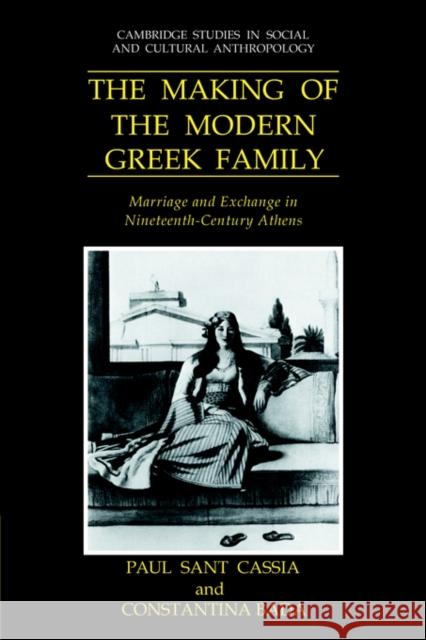The Making of the Modern Greek Family: Marriage and Exchange in Nineteenth-Century Athens » książka
The Making of the Modern Greek Family: Marriage and Exchange in Nineteenth-Century Athens
ISBN-13: 9780521028264 / Angielski / Miękka / 2006 / 300 str.
This 1991 study deals with a specific set of institutions in nineteenth-century Athens. Relying on matrimonial contracts, travellers' accounts, memoirs and popular literature, the authors show how distinctive forms of marriage, kinship and property transmission evolved in Athens in the nineteenth century. These forms then became a feature of wider Greek society which continued into the twentieth century. Greece was the first post-colonial modern nation state in Europe whose national identity was created largely by peasants who had migrated to the city. As Athenian society became less agrarian, a new mercantile group superseded and incorporated previous elites and went on to dominate and control the new resources of the nation state. Such groups developed their own, more mobile, systems of property transmission, mostly in response to external pressures of a political and economic character. This is a persuasive piece of detective work which has advanced our knowledge of modern Greece. It is a model for scholarship on the development of family and other 'intimate' ideologies where nation states encroach upon local consciousness.











